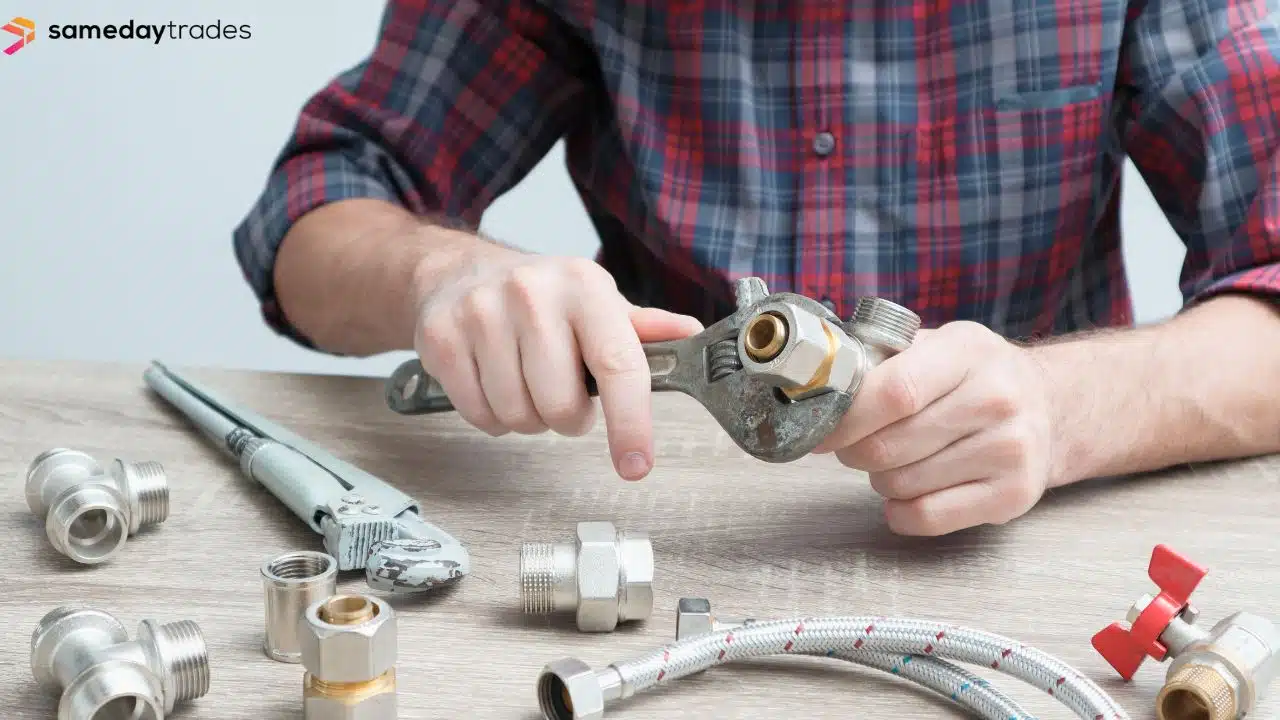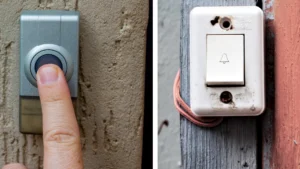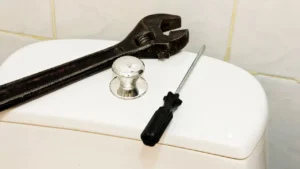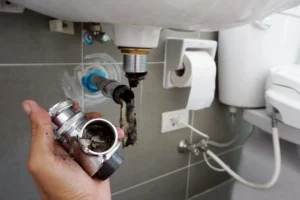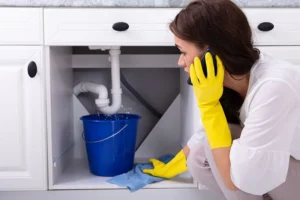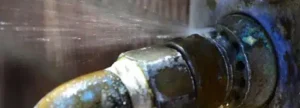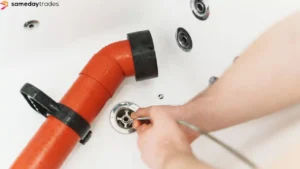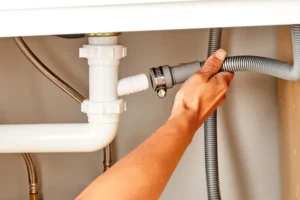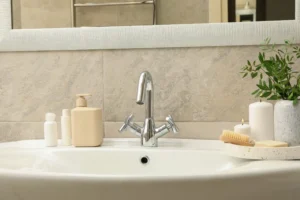Leaking taps or clogged drains driving you crazy? Plumbers are the pros who handle much more than just fixing leaks. We will try to explain what plumber do, from repairs to major installations, in simple terms.
Key Responsibilities of a Plumber
Plumbers keep water systems working smoothly, whether it’s fixing leaks or installing new pipes. They handle tricky tasks daily, making sure homes and businesses stay safe and functional.
Installing and repairing plumbing systems
Installing plumbing systems involves connecting water pipes, fittings, and drainage lines. Tradespeople also handle toilets, showers, sinks, stoves, and domestic appliances like washing machines.
They ensure clean water flows to kitchens and bathrooms while directing sewage away safely. Skilled workers set up fire sprinkler systems in homes or buildings during renovations or construction.
Repair tasks include fixing leaky taps or clogged drains and replacing faulty water heaters. Cracked pipes and damaged sewerage lines are common problems they solve. Using specialised tools like pipe cutters, wrenches, and inspection cameras speeds up their job.
For safety compliance, all work aligns with strict building codes in Australia.
Maintaining drainage and sewage systems
Cracked pipes, clogged drains, and backed-up sewage systems can spell disaster. Plumbers stop these issues with regular maintenance. They check for wear and tear in pipes using tools like drain cameras.
These gadgets peek inside to find blockages or damage that needs repair.
Routine services keep drainage flowing smoothly. From basements to bathrooms, plumbers clean out dirt, grease, and tree roots from pipes. They prevent emergencies by fixing small leakages before they grow worse.
Well-maintained sewage systems protect homes and save money down the track.
Working with gas and water supply lines
Gas lines must be handled with caution. Plumbers install and repair them to prevent leaks or hazards. They use tools like wrenches, pipe cutters, and soldering equipment for precise work.
Safety rules are critical here—no shortcuts allowed. Faulty gas lines can lead to serious risks.
Water supply systems are equally vital. Plumbers connect clean water through pipes into homes or businesses. They inspect old pipes and fix any issues quickly to keep water flowing safely.
Without proper care, contaminated water could ruin a household’s health in no time!
Types of Plumbing Services
Plumbing covers jobs big and small, from fixing simple leaks to complex systems. Whether it’s at home, a business, or during an emergency, plumbers stay ready with tools in hand.
Residential plumbing
Residential plumbing fixes and maintains water, gas, and sewage systems in homes. Tasks include installing pipes, repairing leaks, and replacing drains or pipes. Plumbers also set up hot water systems, flushing toilets, rainwater tanks, and other plumbing fixtures in kitchens or bathrooms.
They often work in tricky spots like attics or basements during renovations.
Plumbers inspect systems to prevent bigger problems like clogs or broken DWV (drain-waste-vent) systems. Whether it’s clearing blocked drains or ensuring proper water flow for efficient heating and ventilation at home—residential plumbers keep things running smoothly year-round!
Next comes services plumbers offer beyond just residential tasks…
Commercial plumbing
Plumbers handle large-scale systems in commercial buildings. They work on office blocks, hospitals, shopping centres, and schools. Jobs include fixing water supply lines, maintaining drainage systems, and setting up fire sprinklers.
These projects need precision because mistakes can affect many people.
They often team up with independent contractors like carpenters or electricians to install dwv systems correctly. Coordination matters to avoid delays or faults. Overtime is common during tight deadlines.
Safety checks are crucial too—plumbers inspect pipes and drains regularly to keep things running smoothly for businesses.
Emergency plumbing services
Burst pipes, severe leaks, and blocked drains can’t wait. Emergency plumbers handle these urgent problems day or night. A sudden pipe burst could flood your home in minutes. Clogged drains might cause sewage to back up into sinks or toilets.
Schedules can be unpredictable due to emergencies. One call at midnight could send a plumber rushing out the door. Fast fixes for gas leaks or hot water failures are also common tasks during these calls.
Emergency plumbing keeps homes and businesses running smoothly, even after hours!
Conclusion
Plumbers are the quiet heroes fixing what makes our daily lives flow. From leaky pipes to complex plumbing systems, they keep things running smoothly. Whether in homes or big buildings, their work keeps water and gas lines safe and reliable.
Next time a drain clogs or a pipe bursts, you’ll know who’s got your back!
FAQs
What do plumbers actually do?
Plumbers fix and maintain drains and pipes, install water systems, and handle inspections to spot issues early. They also help with HVAC systems and sometimes work as a handyman for related tasks.
Do plumbers only work on household jobs?
No, plumbers tackle both residential and commercial projects. Some even take fly-in fly-out roles for big industrial sites or remote areas.
Can plumbers help with water conservation?
Yes, they can! Plumbers suggest ways to save water by installing efficient fixtures or repairing leaks that waste it.

